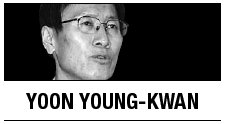SEOUL ― According to North Korean state television, the heart attack that killed Kim Jong-il on Dec. 17 was “due to severe mental and physical stress from overwork.” That report instantly raised a question in my mind: if we accept the regime’s diagnosis, why did Kim need to work so hard, despite his frail health? In some sense, his sudden death seems to symbolize the helplessness of a desperate leader confronting overwhelming challenges.

Seen in this light, the more important question is whether or not Kim’s inexperienced son, the twenty-something “Great Successor” Kim Jong-un, will be able to consolidate power and somehow steer the country out of its deep malaise. So far, the succession in Pyongyang seems to be proceeding in an orderly fashion. But, despite appearances, few totalitarian regimes, save those of Hitler, Stalin, and Mao, have ever maintained a monolithic inner circle of power. North Korea is unlikely to be an exception to this rule.
The legitimacy of Kim Jong-un’s claim to power is weak, despite his blood tie to his father and grandfather, the dynasty that has ruled North Korea since its inception. The “Great Successor” has had barely two years of on-the-job training, compared to the 14 years his father spent studying directly under Kim Il-sung. Of course, Kim Jong-il’s sister, Kim Kyung-hee, and his brother-in-law, Jang Seong-taek, will assume something of a regency role, acting both as patron to the Great Successor and as a force to mobilize the military to close ranks behind the Kim dynasty.
But it is not clear how faithfully, and for how long, Kim Kyung-hee and Jang will remain supportive of Kim Jong-un. They might even try to supplant Kim by claiming power for themselves.
Another challenge may come from the country’s senior leaders, especially among the military. Will they remain faithful to Kim, who is 40-50 years their junior?
It is known that some senior military officers were quietly critical of Kim Jong-il’s failure in managing the country’s relationship with the United States and Japan. Their expectation might have been that North Korea could improve relations with the U.S. while retaining its nuclear weapons, in exchange for not developing long-range missiles. After all, if Pakistan did it, why not North Korea?
Had that happened, economic assistance from the U.S. and Japan would have flowed into North Korea, enabling the regime to manage the country’s moribund economy much better without initiating reforms, which the military appears to regard as dangerous. Instead, with the economy, particularly food production, continuing to falter, perhaps one-third of the country is living at or below starvation levels. Will Kim Jong-un leader be able to do better?
In the early stages of this precarious succession, China has behaved as expected, trying to prop up the regime in order to ensure stability in its nuclear-armed neighbor. China’s foreign ministry sent a strong message of support for Kim Jong-un, and encouraged North Koreans to unite under the new leader.
But the key external factor in ensuring a peaceful succession will be the policies of South Korea and the U.S., which must decide whether they can work with the North in the post-Kim Jong-il era. Will they wait to see what happens to the new leader, and thus continue their policy of “strategic patience,” which focuses mainly on denuclearization, and not move on to other areas until the North moves first? In that case, North Korea will gradually become more unstable, despite China’s support, as economic collapse undermines its quasi-legitimate leadership.
Or will South Korea and the U.S. try to take advantage of Kim Jong-il’s passing with new policy initiatives? If they can develop a two-track policy framework aimed at facilitating economic reform inside North Korea while continuing international pressure for denuclearization, constructive engagement may be possible.
Alas, next year is an election year in South Korea and the U.S. In the feverish atmosphere of political high season, it will not be easy for incumbent administrations to pursue bold but risky policies. This is the agony of democracy, and it is why the next year may prove to be the most unstable, and even dangerous, period in decades for the Korean peninsula and the region.
What happens if things go the wrong way? What if, for example, Kim Jong-un fails to consolidate power, perceives the domestic political situation as worsening, owing to elite power struggles or popular discontent, and deems the external environment, especially South Korea and the U.S. ever more hostile? In that case, Kim III may grasp at provocation in one form or another, as his father did with intermittent attacks on South Korea in recent years.
If things do worsen even more, the world, like it or not, must be prepared to manage ― and even confront ― a scenario in which the Kim dynasty, and with it the North Korean state, collapses. Unfortunately, considering the current state of ill-preparedness in terms of international coordination, there will be confusion, misunderstanding, and overreaction among South Korea, the U.S., and China to other actors’ behavior. So it is past time for all three powers, together with Japan and Russia, to start talking and planning ahead, jointly. A chaotic, imploding North Korea is in no one’s interest.
By Yoon Young-kwan
Yoon Young-kwan, South Korea’s foreign minister in 2003-04, is currently a professor of international relations at Seoul National University. ― Ed.
(Project Syndicate)








![[Weekender] Korea's traditional sauce culture gains global recognition](http://res.heraldm.com/phpwas/restmb_idxmake.php?idx=644&simg=/content/image/2024/11/21/20241121050153_0.jpg)